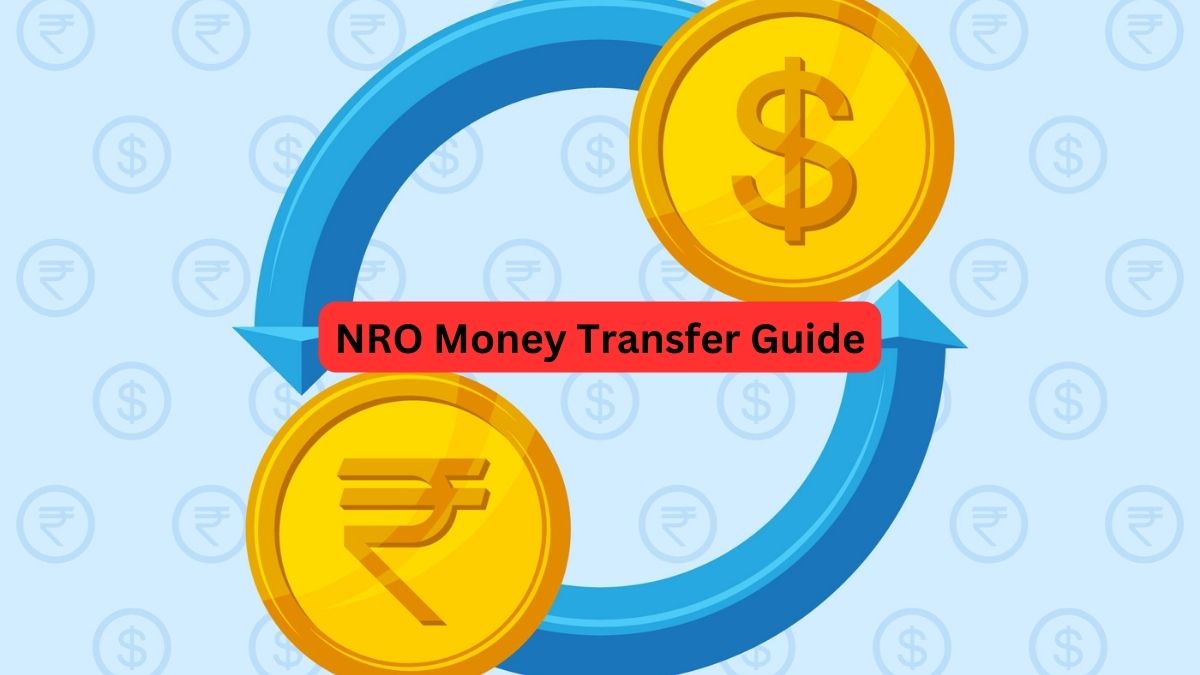Embarking on an NRO money transfer journey? This guide is your go-to resource for NRIs seeking a step-by-step process to effortlessly transfer funds from their NRO accounts. With regulations, documentation details, and essential tips, we ensure you navigate the complexities with ease…
- Table of Contents
- Understanding the Source of Funds:
- RBI Approval Requirements:
- Taxation and TDS Obligations:
- Documentation for Outward Remittance:
- Source of Funds Verification:
- Submission Process and Timeline:
- Calculation of Remittance Limit of NRO Money Transfer
- Considerations and Tips:
- off, especially for you
Table of Contents
Non-Resident Indians (NRIs) often manage two types of bank accounts in India, the Non-Resident External (NRE) account and the Non-Resident Ordinary (NRO) account. While repatriating money from NRE accounts is straightforward, transferring funds from NRO accounts requires adherence to specific rules, documentation, and approval processes outlined by the Reserve Bank of India (RBI). In this comprehensive guide, we will explore the nuances and steps that NRIs must follow to successfully transfer money from their NRO accounts outside India.
Understanding the Source of Funds:
a. NRO Account Overview:
- NRIs typically hold NRO accounts for managing income earned in India.
- Unlike NRE accounts, repatriation of funds from NRO accounts involves certain limitations and regulatory requirements.
b. NRO Money Transfer Repatriation Limits:
- NRIs can remit up to USD 1 million per financial year from the balances in their NRO accounts.
- The limit applies to funds sourced from non-current income, while there is no restriction on remitting current income (e.g., rent, dividend, pension, interest).
RBI Approval Requirements:
a. Delegated Powers of Authorized Dealer Banks:
- Authorized dealer banks, responsible for opening NRO accounts, have delegated powers from the RBI to facilitate remittances.
- RBI approval is necessary only if the remittance from NRO accounts exceeds USD 1 million in a financial year for non-current income.
b. Current Income vs. Non-Current Income:
- Remittances of current income do not require RBI approval, while remittance of non-current income exceeding USD 1 million necessitates RBI clearance.
Taxation and TDS Obligations:
a. Payment of Taxes:
- Funds in NRO accounts are derived from income earned in India, requiring payment of taxes before repatriation.
- Taxes are applicable based on the nature of income, and payment must precede any transfer.
b. Form 15CA and Form 15CB:
- Section 195 of the Income Tax Act mandates the submission of Form 15CA and Form 15CB for outward remittances from NRO accounts.
- TDS (Tax Deducted at Source) applies to payments containing taxable income elements.
Documentation for Outward Remittance:
a. Required Documents for NRO Money Transfer:
- Application for outward remittance from NRO account.
- Form A2 complies with RBI regulations.
- Form 15CB (Chartered Accountant Certificate).
- Form 15CA (Declaration by NRI/PIO to Income Tax Department).
- Copy of PAN card.
- Evidence of the source of funds.
- Copy of Passport.
b. Verification by Chartered Accountant:
- A Chartered Accountant issues Form 15CB, certifying that relevant taxes on NRO account funds have been paid.
Source of Funds Verification:
a. Documentation Requirement:
- The type of documentation depends on the source of funds in the NRO account (e.g., rent receipts, dividend proofs, sale deed for inherited property).
- FEMA Regulations restrict remittances of borrowed or transferred funds from other NRO accounts.
b. Undertaking for Remittance:
- An undertaking is required for remittances from NRO accounts, confirming that the funds are from legitimate receivables in India and not borrowed.
Submission Process and Timeline:
a. Document Submission:
- Individuals must submit the required documents to their bank, which may offer online or physical submission options.
- Form 15CA/15CB must be electronically filed on the Income Tax e-filing portal.
b. Processing Time:
- The timeline for remitting funds from NRO accounts depends on document verification by the bank.
- Additional queries or document requirements may extend the process.
Calculation of Remittance Limit of NRO Money Transfer
a. No Limit on Frequency:
- There is no restriction on the number of remittances on NRO Money Transfer.
- The USD 1 million limit is calculated based on the final amount remitted in foreign currency after considering exchange rates and transaction charges.
Considerations and Tips:
a. Exchange Rates and Transaction Charges:
- Understanding exchange rates and transaction charges is crucial when converting INR to foreign currency for remittance.
- Comparing rates offered by different sources helps optimize the amount remitted.
b. Instalment Remittances:
- Making all instalments through the same bank or an authorized dealer is advisable to track total remittances and avoid exceeding the USD 1 million limit.
Must Read: Top LIC Insurance Plans for Non-Resident Indians (NRIs): A Comprehensive Guide
Conclusion:
Successfully transferring money from NRO accounts involves navigating a regulatory landscape, adhering to documentation requirements, and ensuring compliance with tax obligations. NRIs must collaborate with authorized dealer banks, follow the prescribed procedures, and stay informed about the dynamic factors influencing remittances. By understanding and meticulously fulfilling these criteria, NRIs can efficiently transfer funds from their NRO accounts while staying within the regulatory framework set by the RBI.
